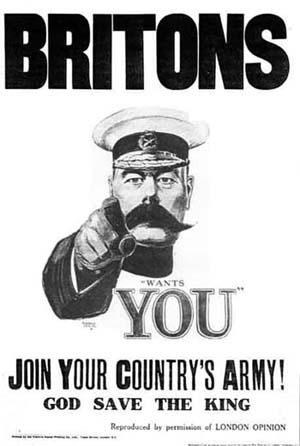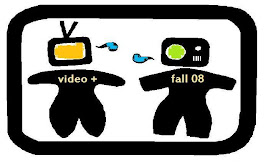Hello:
This a very nice final project.
You have to write your personal comentary after watching each video. The lenght of your comment will depend on your creativity and how many conections you can make giving some examples with your personal vision.
The threee videos, are part of m
1. Gery's Game:
2. The Piano.
3.L'Animateur.
4. Delivery.
jueves, 3 de julio de 2008
jueves, 26 de junio de 2008
MY OWN STORY
 3. Tell some anecdotes about parents and grandparents and how they met. “Imagine” a family history, either inspired by actual events or made up of fictional people and how they met. The stories must begin with an ending such as the one in The Danish Poet: "If it hadn't been for a Danish poet and Sigrid Undset and a rainy summer in Norway and a slippery barn plank and a careless mailman and a hungry goat and broken thumb and a crowded train, my parents might never have met."
3. Tell some anecdotes about parents and grandparents and how they met. “Imagine” a family history, either inspired by actual events or made up of fictional people and how they met. The stories must begin with an ending such as the one in The Danish Poet: "If it hadn't been for a Danish poet and Sigrid Undset and a rainy summer in Norway and a slippery barn plank and a careless mailman and a hungry goat and broken thumb and a crowded train, my parents might never have met."There are many ways to trace one's ancestors, either by researching genealogy or through DNA tracing, but if we want to know the human stories, we have to ask family members and hope for the best.
The Danish Poet
Let's begin the last part of our summer course with something very interesting. The Danish Poet is an awarded short animated film in 2006, it even won the Oscar in that category, so, it´s really good, you'll see.
Here's what you are going to do:
1. Watch the film (it takes aproximately 15 minutes)
2. Answer these questions on the blog:
A. Discuss the subtle techniques used in the film. Which elements had an emotional impact? (The
delicate music and the lilting accent of the narrator, for example, give the film a kind of Sweetness and sense of pending romance.)
How did the filmmaker, Torill Kove, prevent the story from being too sweet? (She adds regular dashes of wickedly funny detail, e.g., the perilously sliding bovine, the madly growing hair, the dog that gets kicked regularly, the eventual love affair between that dog and the neighbor dog, etc.)
B. Talk about the elements of truth in the film: summers in Norway are notoriously rainy; many
Danes, Swedes and Norwegians are somewhat confused about their national beginnings; Sigrid
Undset was a writer who won the Nobel Prize for Literature.
Do you believe that Undset was really a distant relative of the filmmaker? Or is this a device
to tell a wonderful story? Does it matter? This should lead to a discussion about poetic license
and fact vs. fiction, when writers and filmmakers create an entertaining story based on real events and people.
C. Did you like it? why?
A. Discuss the subtle techniques used in the film. Which elements had an emotional impact? (The
delicate music and the lilting accent of the narrator, for example, give the film a kind of Sweetness and sense of pending romance.)
How did the filmmaker, Torill Kove, prevent the story from being too sweet? (She adds regular dashes of wickedly funny detail, e.g., the perilously sliding bovine, the madly growing hair, the dog that gets kicked regularly, the eventual love affair between that dog and the neighbor dog, etc.)
B. Talk about the elements of truth in the film: summers in Norway are notoriously rainy; many
Danes, Swedes and Norwegians are somewhat confused about their national beginnings; Sigrid
Undset was a writer who won the Nobel Prize for Literature.
Do you believe that Undset was really a distant relative of the filmmaker? Or is this a device
to tell a wonderful story? Does it matter? This should lead to a discussion about poetic license
and fact vs. fiction, when writers and filmmakers create an entertaining story based on real events and people.
C. Did you like it? why?
3. Write your own story. (in the another entry)
martes, 24 de junio de 2008
for test 3
Sentence Fragments.
http://www.4shared.com/file/52579422/ca513463/sentence_Fragments.html
Adverbs of time and sequence.
http://www.4shared.com/file/52579620/27db8121/Adverbs_of_time_and_sequence.html
Prespsitions f time and Place
http://www.4shared.com/file/52580072/4f77b0a1/Prepositions_of_time_and_place.html
Participles as adjetives
http://www.4shared.com/file/52580798/346e62b4/participles_as_adjectives.html
good luck.
http://www.4shared.com/file/52579422/ca513463/sentence_Fragments.html
Adverbs of time and sequence.
http://www.4shared.com/file/52579620/27db8121/Adverbs_of_time_and_sequence.html
Prespsitions f time and Place
http://www.4shared.com/file/52580072/4f77b0a1/Prepositions_of_time_and_place.html
Participles as adjetives
http://www.4shared.com/file/52580798/346e62b4/participles_as_adjectives.html
good luck.
lunes, 23 de junio de 2008
John Titor -Time Traveler
Go to the following page about this unknown person who claims to have arrived in this era from the near future. Read as much as you want and comment your opinions on the response area.
http://www.johntitor.com/
http://www.johntitor.com/
martes, 17 de junio de 2008
Speech vs Propaganda 2nd Project
This job will be counted in three parts and it will be handed thursday.
How to do it:
1. Choose a speech from this list.
2. Listen and analyze it in detail. (you can dowload it, there's a special link marked as mp3's)
3. Record a video monologue about why did you select it? why is it important? What is the message? Do you think it can be used nowdays? (this video will be at least 2 minutes long and they should be in mpg, wmv or avi format, do not use cellphone the quality isnt that good)
4. Create a propaganda for your speech. Use your creativity to show in paper the ideas of the speech you selected and commented. Drawings, pictures, colors anything will be accepted, Just be creative.
Good luck on your projects.
lunes, 16 de junio de 2008
Propaganda

Propaganda is a concerted set of messages aimed at influencing the opinions or behaviors of large numbers of people. As opposed to impartially providing information, propaganda in its most basic sense presents information in order to influence its audience. Propaganda often presents facts selectively (thus lying by omission) to encourage a particular synthesis, or gives loaded messages in order to produce an emotional rather than rational response to the information presented. The desired result is a change of the cognitive narrative of the subject in the target audience to further a political agenda.

Propaganda is the deliberate, systematic attempt to shape perceptions, manipulate cognitions, and direct behavior to achieve a response that furthers the desired intent of the propagandist.
Propaganda shares techniques with advertising and public relations. Advertising and public relations can be thought of as propaganda that promotes a commercial product or shapes the perception of an organization, person or brand, though in post-World War II usage the word "propaganda" more typically refers to political or nationalist uses of these techniques or to the promotion of a set of ideas, since the term had gained a pejorative meaning, which commercial and government entities couldn’t accept. The refusal phenomenon was eventually to be seen in politics itself by the substitution of ‘political marketing’ and other designations for ‘political propaganda’.
Propaganda was often used to influence opinions and beliefs on religious issues, particularly during the split between the Catholic Church and the Protestants. Propaganda has become more common in political contexts, in particular to refer to certain efforts sponsored by governments, political groups, but also often covert interests. In the early 20th century the term propaganda was also used by the founders of the nascent public relations industry to describe their activities. This usage died out around the time of World War II, as the industry started to avoid the word, given the pejorative connotation it had acquired.
Literally translated from the Latin gerundive as "things which must be disseminated", in some cultures the term is neutral or even positive, while in others the term has acquired a strong negative connotation. The connotations of the term "propaganda" can also vary over time. For example, in Portuguese and some Spanish language speaking countries, particularly in the Southern Cone, the word "propaganda" usually refers to the most common manipulative media — "advertising".
Propaganda was often used to influence opinions and beliefs on religious issues, particularly during the split between the Catholic Church and the Protestants. Propaganda has become more common in political contexts, in particular to refer to certain efforts sponsored by governments, political groups, but also often covert interests. In the early 20th century the term propaganda was also used by the founders of the nascent public relations industry to describe their activities. This usage died out around the time of World War II, as the industry started to avoid the word, given the pejorative connotation it had acquired.
Literally translated from the Latin gerundive as "things which must be disseminated", in some cultures the term is neutral or even positive, while in others the term has acquired a strong negative connotation. The connotations of the term "propaganda" can also vary over time. For example, in Portuguese and some Spanish language speaking countries, particularly in the Southern Cone, the word "propaganda" usually refers to the most common manipulative media — "advertising".

In English, "propaganda" was originally a neutral term used to describe the dissemination of information in favor of any given cause. During the 20th century, however, the term acquired a thoroughly negative meaning in western countries, representing the intentional dissemination of often false, but certainly "compelling" claims to support or justify political actions or ideologies. This redefinition arose because both the Soviet Union and Germany's government under Hitler admitted explicitly to using propaganda favoring, respectively, communism and fascism, in all forms of public expression. As these ideologies were antipathetic to liberal western societies, the negative feelings toward them came to be projected into the word "propaganda" itself.
What could be the difference between propanda and advertisement?
Search on the web and find an example you like about the use (good or bad) of propaganda and mention its results.
jueves, 12 de junio de 2008
miércoles, 11 de junio de 2008
Answer topic
1. In you own words, answer this question and develop your ideas.
Should countries have programs to promote bilingualism in English, or should countries be more focused on programs that develop ther original native languages? Why?
Should countries have programs to promote bilingualism in English, or should countries be more focused on programs that develop ther original native languages? Why?
martes, 10 de junio de 2008
Freaky Magician

If you get the trick let me know because I couldn't figured it out.http://www.learnenglish.org.uk/games/magic-gopher-central.swf
lunes, 9 de junio de 2008
Presentation - Subject-Verb agreement

Go to this link and click on the following link in oder to download the file.
thanks.http://www.4shared.com/file/50712122/4e8c340b/svagr.html
Suscribirse a:
Entradas (Atom)




